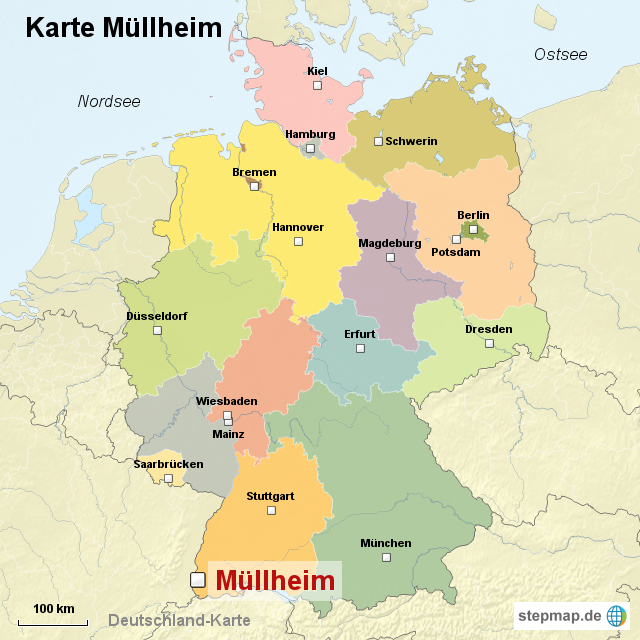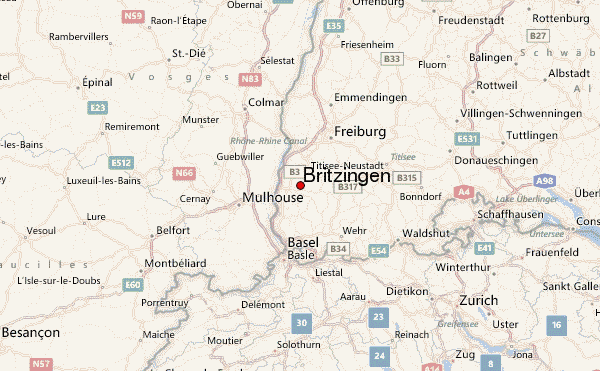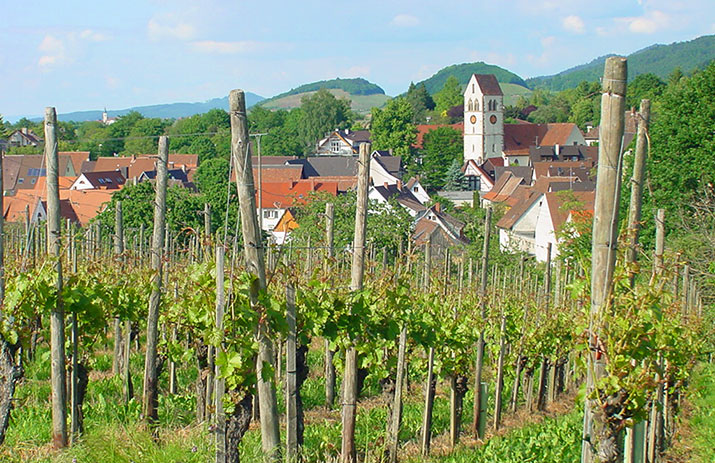In order to find out when two different families (very possibly the Schochs and the Maiers) could, according to Jacob Schochenmaier, found their joint wagon and buggy company in Germany, we should search for the very first mention of Schochenmaiers in the history.
I will present my first results for both the Schochenmaiers and the Schachenmayrs.
Let's start with the very first mention of Schochenmaiers that means the oldest ones which can be found anywhere.
The oldest notice on the FamilySearch refer to Maria Schochenmeyer born on the 2nd March (baptized on the 7th March) 1652 in the family of Leopold Schochenmeyer and Anna Seueber at the Britzingen village (Lörrach area, in Baden):
If the information is right, then Leopold Schochenmeyer should be born between 1620s-1630s, it's the beginning of the 17 century. So, we may suggest that the company had been found earlier, maybe between late 16th - early 17th century, or during the 16th century. The production of the company might look like that:

There is no information about Leopold himself, he's mentioned as father of Maria.
On the place
Britzingen is indicated as place of birth. Today it's an administrative part of Müllheim:

Britzingen with his district Dattingen and the romantic villages Güttigheim and Muggardt is located in the heart of Markgräferland, in the foothills of the southern Black Forest, on the edge of the Rhine valley.
Here you can see Britzingen between French Mulhouse, Swiss Basel and German Freiburg (where I am living!)


The two villages, Britzingen and Muggardt, belong together. Britzingen is a well known wine- and vacation resort with lots of private places to stay and some good restaurants.

The Winzergenossenschaft Britzingen, a local wine cartel, and the private wine cellars of the Behringer family, produce a fine wine.

They have customers as far away as Japan. Wine cellar tours and wine tasting are being held regularly during the summer months.


Here you can see even a house of the 17th century:


The name translates to Margraves' Land, in reference to the Margraves of Baden. They ruled the area from the 12th century as a margraviate of the Holy Roman Empire until its elevation to the Grand Duchy of Baden in 1806, following the Empire's dissolution. Markgräflerland is the combination of three duchies: Badenweiler, Rötteln and Sausenburg.The river Rhine marks the frontier to France in the west and Switzerland in the south.
Before his death, the prince Christopher I divided the Margraviate between his three sons. Philip succeeded him in 1515 but died childless in 1533, and his share went to his brothers, Bernard and Ernest. In 1535, they made a fresh division of their inheritance. It would be the first of several partitions, establishing the two main lines of the House of Baden – Baden-Baden and Baden-Durlach (Baden-Pforzheim until 1565) – which would last until 1771. However, the relations between the two lines were not peaceful, and the constant fragmentation did not help.
So far for today. Now we know the names of the first Schochenmaiers ever! But where had been the second ones?
I will present my first results for both the Schochenmaiers and the Schachenmayrs.
Let's start with the very first mention of Schochenmaiers that means the oldest ones which can be found anywhere.
The oldest notice on the FamilySearch refer to Maria Schochenmeyer born on the 2nd March (baptized on the 7th March) 1652 in the family of Leopold Schochenmeyer and Anna Seueber at the Britzingen village (Lörrach area, in Baden):
If the information is right, then Leopold Schochenmeyer should be born between 1620s-1630s, it's the beginning of the 17 century. So, we may suggest that the company had been found earlier, maybe between late 16th - early 17th century, or during the 16th century. The production of the company might look like that:

There is no information about Leopold himself, he's mentioned as father of Maria.
On the place
Britzingen is indicated as place of birth. Today it's an administrative part of Müllheim:

Here you can see Britzingen between French Mulhouse, Swiss Basel and German Freiburg (where I am living!)

In 1526 Britzingen as part of Markgraf (Margrave) became Protestant following the actions of the German monk Martin Luther. It's evangelical:

The two villages, Britzingen and Muggardt, belong together. Britzingen is a well known wine- and vacation resort with lots of private places to stay and some good restaurants.

The Winzergenossenschaft Britzingen, a local wine cartel, and the private wine cellars of the Behringer family, produce a fine wine.

They have customers as far away as Japan. Wine cellar tours and wine tasting are being held regularly during the summer months.


Here you can see even a house of the 17th century:

On the time
1620-1650s - was time when Britzingen had been a part of the Baden-Durlach within Margraviate of Baden:

It's highlighted with whity-brown on the left at the bottom (where is Müllheim).
Before his death, the prince Christopher I divided the Margraviate between his three sons. Philip succeeded him in 1515 but died childless in 1533, and his share went to his brothers, Bernard and Ernest. In 1535, they made a fresh division of their inheritance. It would be the first of several partitions, establishing the two main lines of the House of Baden – Baden-Baden and Baden-Durlach (Baden-Pforzheim until 1565) – which would last until 1771. However, the relations between the two lines were not peaceful, and the constant fragmentation did not help.
During the Reformation, several branches, led by Baden-Baden, remained on the side of the Catholics, the others joining with Baden-Durlach on the Protestant side. The Thirty Years War made matters worse for all the branches. Many of them were exiled to other countries. Baden suffered severely during the war. The 1648 Treaty of Westphalia restored the branches and their churches to their own lands. Gradually the rivalry subsided. During the wars of Louis XIV, the "Sun King" of France, the two Margraviates were ravaged by the French troops. The forces of the Holy Roman Empire, led by the Margrave of Baden-Baden, “Turk” Louis William (reigned 1677-1707) fought against France.
So far for today. Now we know the names of the first Schochenmaiers ever! But where had been the second ones?

No comments:
Post a Comment